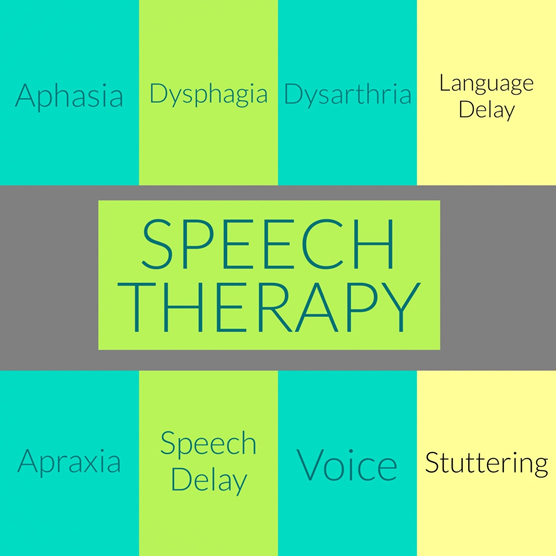
How Does Speech Therapy Work for Adults? - Physio Inq
Thursday, March 19, 2020
When we think of lisps and speech impediments, we often only think of children. Yet, there are many reasons why adults could benefit from speech therapy.
There's no shame in reaching out for help with communication, enunciation, comprehension, or any other issue related to speech. Here, we're talking about what speech therapy is, why an adult might need speech therapy, and how speech therapy for adults works.
What is speech therapy?
Speech therapy can take place in many different ways depending on the disorder you're dealing with and the goals you'd like to achieve. Speech therapy helps with speech, language, and social skills and both children and adults can take advantage.
Someone who would benefit from speech pathology might have the following symptoms:
- Difficulty speaking clearly
- Issues with swallowing
- Difficulty stringing words and phrases together
- Difficulty reading and writing
- Dry mouth
- Stuttering and lisps
- Chronic sore throat or pain in the vocal cords

Why might an adult need speech therapy?
It's true that many speech problems begin in childhood, but there is a plethora of other reasons why someone might be struggling with their speech as an adult. From an array of circumstances, here are a few reasons why an adult might need speech therapy:
- Laryngeal cancer
- Dementia
- Oral cancer
- Brain injury
- Stroke
- Respiratory conditions
- Surgery
- Aging
- Autism
- Accent modification
These are just some causes of speech disorders that might occur later in life. Still, speech impediments that were never dealt with in childhood might continue to cause issues in adulthood and might lead an adult to seek speech therapy.
Speech and Language Disorders
Before we go any further, let's go over the different kinds of speech and language disorders that might emerge.
The first is apraxia which involves brain impairment. You might experience apraxia after a stroke, brain injury, or surgery that affected the brain. When messages from your brain are disrupted, it can make it difficult or impossible to speak.
Dysarthria is also related to a malfunction in the brain where the messages are getting there but the part of the brain that controls the actual muscles of the lips, face, tongue, and throat are damaged.
Aphasia is another disorder related to the brain. It refers to a person who has trouble understanding, speaking, reading, or writing. Language skills are on the left side of the brain but the attention and memory skills are on the right side. One without the other can cause problems that require the help of speech therapy.
For example, dementia causes issues with your memory. So, even if you have the ability to use grammar, if your memory is impaired, you won't be able to retrieve the necessary information.
Other issues might involve your larynx (voice box) which can result in symptoms like hoarseness, polyps or nodules on the vocal cords, spasmodic dysphonia which is another brain disorder, or vocal cord paralysis.
Larynx issues are common in singers, actors, public speakers, and others who are required to project their voices often.
As an adult, you might also elect to participate in speech therapy.
Perhaps you want to modify your accent in order to better communicate with people in a new country. Also, many people who are transgender are interested in voice changes that will help better represent who they are.
How Speech Therapy for Adults Works
There are a variety of ways speech therapy can work for adults. Depending on the cause of your speech issues and what you hope to achieve in the process, treatment can vary. Speech therapy treatment options for adults often include:
- Target selection
- Contextual utilisation
- Contrast therapy
- Oral-motor therapy
Target selection involves targeting specific sounds that you might be having particular trouble with. For example, if you form a lisp when pronouncing the “S” sound, your speech therapist might focus only on those sounds. If you have a stutter, your speech therapist might recognize the words or part of a sentence that causes the disruption and focus on those.
Contextual utilisation uses individual syllables as the context for speech exercises. Breaking up the words into more manageable parts are often used to help re-learn or solidify word structures after a brain injury or deterioration.
Contrast therapy practices words in pairs to exemplify their differences. Examples of pairs a speech therapist might use during contrast therapy are “dough” and “show” or “beat” and “feet.” These words are spelled differently but sound similar. Using these pairs to make distinctions can help with certain speech and language issues.
Oral-motor therapy works with the actual muscles of the face and mouth to improve language and speech skills. Strengthening and fine-tuning the muscles of the jaw, lips, tongue, and throat are all essential and speech therapists offer tools and exercises that help.
Adult Speech Therapy Treatment Plan
If you're concerned that either you or a loved one needs help with a speech or language skill, seeking the assistance of a speech therapist can be a game-changer.
Step 1: Book an appointment with a Physio Inq speech pathologist. Our speech therapy specialists are available right across Australia in a mobile and in-home capacity.
Step 2: Your speech therapist will assess your current skills and weaknesses. It will also be beneficial to provide your therapist with past medical records to help them get a better understanding of your situation.
Step 3: Once your speech therapist understands your circumstances, they'll work with you to create action plan.
Step 4: After a set period of time, your speech therapist will assess your progress and reevaluate your goals. They may need to switch up some exercises based on what's working and what isn't and continue with an updated treatment plan.
Working with a speech therapist can sometimes be a lengthy process but it's a process that shouldn't be written off. Having the ability to communicate with and understand the world around us is absolutely essential to our well-being.
More Speech Therapy Resources
How to know if speech pathology for a 3-year-old is necessary?
Book an appointment with one of our experienced speech pathologists today OR Call us on 1300 731 733 to talk directly with one of our intake team members.
With intervention, speech therapy can improve communication and boost self-confidence. Live a life with less limits.
This article was originally written by Jonathan Moody from Physio Inq

